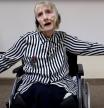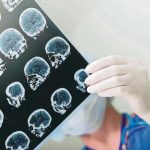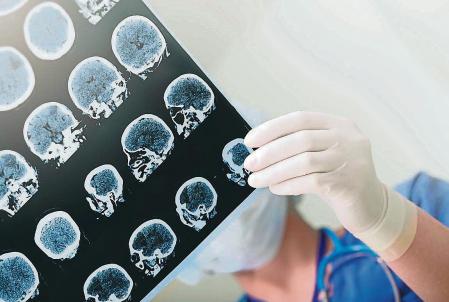



A 65-year-old woman repeatedly seeks medical help for her memory losses. First they tell him that there is nothing to worry about and, a year later, that it is “just normal aging.” Until finally there is another diagnosis: “It’s Alzheimer’s. “There is no cure.”
Scenarios like this are all too common. Dementia remains largely underdiagnosed, even in high-income countries. The belief that cognitive deficits are normal in older people, and a lack of knowledge about dementia symptoms and diagnostic criteria among doctors, have been identified as the main culprits for undetected cases and late diagnoses.
Age-related memory losses should not be attributed to normal aging. Occasionally forgetting where we parked the car or where we left the keys can happen to anyone, but when these situations become frequent, it is important to seek medical advice.
While many people who experience mild changes in their ability to think and remember information will not develop dementia, for others, these declines are an early warning sign. Research has shown that people with mild changes in cognition have a higher risk of developing dementia later in life.
People with mild changes in cognition have a higher risk of developing dementia later in life
In fact, the disease process (changes in brain structure and metabolism) has been shown to begin decades before the appearance of symptoms such as memory loss. Furthermore, the scientific community increasingly recognizes that interventions that aim to slow or prevent the development of the disease are more effective when initiated at an early stage of the disease.
Despite this, protocols for early detection are not standard in the medical community, in part because there are significant gaps in our understanding of dementia.
Dementia and an aging population
In my research I use advanced brain MRI methods to characterize brain health in older adults who are at high risk of developing dementia. The goal is to identify new biomarkers of early pathology, which could lead to improved detection methods in the future.
The proportion of older people in our population is growing. Dementia is strongly associated with aging, so the number of people diagnosed with dementia, including Alzheimer’s, is expected to increase considerably in the coming decades.
This projected increase will place enormous pressure on our already overburdened healthcare systems if significant action is not taken to reverse this trend. This means that effective prevention strategies are now more urgent than ever.
Recent news about promising new drugs to treat Alzheimer’s disease also highlights the need for early detection. Clinical trials have shown that these medications are most effective in slowing cognitive decline when given early in the course of the disease.
Medications are most effective in slowing cognitive decline when given early in the course of the disease

A doctor looks for parts of the brain damaged by Alzheimer’s in a patient.
Although these new treatment options represent advances for the Alzheimer’s field, more research is needed. These new therapies act on only one disease process (reducing levels of amyloid, a substance believed to be toxic to neurons), so they may slow cognitive decline in only a narrow subset of patients. An adequate characterization of other processes is required, in a personalized manner, to combine these treatments with other strategies.
Not to mention the significant increase in financial and human resources that will be needed to offer these new treatments, which could hinder access to them, especially in low- and middle-income countries, where dementia cases are increasing the most.
Lifestyle and brain health
On the other hand, lifestyle changes have been shown to reduce the risk of developing dementia, with minimal costs and without side effects. By making dementia risk assessment part of routine medical visits for older adults, those who are most at risk could be identified and counseled on how to maintain brain health and cognition.
People at risk probably need these interventions the most (potentially a combination of pharmaceutical and lifestyle interventions), but anyone can benefit from adopting healthy lifestyle habits, which are known to protect against diseases not only of the brain, but also of the heart. and other organs.
Lifestyle changes reduce risk of developing dementia, with minimal costs
According to an influential report, published in The Lancet In 2020, 40% of dementia cases can be attributed to 12 modifiable risk factors. These include high blood pressure, obesity, physical inactivity, diabetes, smoking, excessive alcohol consumption, and infrequent social contact.
This means that, by adopting positive lifestyle habits, we could theoretically prevent around 40% of dementia, according to the report. While there is no guarantee of avoiding cognitive decline, people can significantly reduce their risk of dementia by increasing their physical activity levels, ensuring they are mentally active and increasing social contact, while avoiding smoking and limiting alcohol consumption.

Lifestyle changes decrease the risk of developing dementia, with minimal costs.
Some evidence also suggests that a Mediterranean diet, which emphasizes high consumption of plants (especially leafy green vegetables) while reducing consumption of saturated fat and meat, is also beneficial for brain health.
In short, by encouraging people to be physically, mentally and socially active, a significant number of dementia cases could be kept at bay.
Stefanie Tremblay is a PhD student in Medical Physics. He is studying MRI biomarkers of declining brain health with aging (Concordia University, Montreal, Canada). This article was originally published in The Conversation.